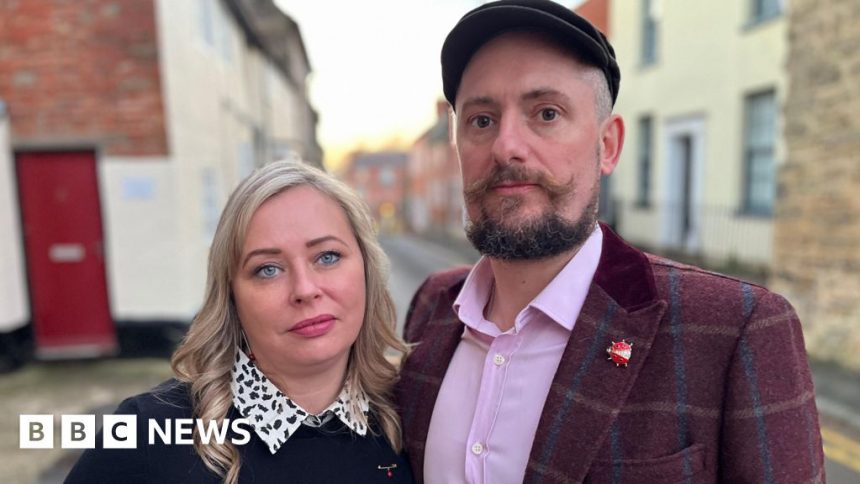Couple believe law was broken in abortion sign-off
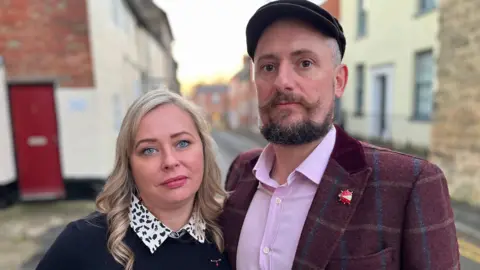 BBC
BBCA couple who went through with an abortion after being mistakenly told their unborn daughter had a serious genetic condition believe doctors did not follow the law.
Carly Wesson and Carl Everson terminated their pregnancy in 2019 after being advised by Nottingham University Hospitals (NUH) NHS Trust that their daughter had Patau’s syndrome – which often results in miscarriage, stillbirth, or the baby dying shortly after birth – but she did not have it.
In order for an abortion to proceed, two doctors have to sign a legal document but the couple believe one of the doctors was not made aware of the circumstances of the termination.
Police are examining the case as part of a wider review of maternity failures at the trust, which said there was nothing to indicate the second doctor “did not have access to all relevant information”.
Ms Wesson, 43, and her partner Mr Everson, 47, were expecting their first child when in January 2019, a blood screening test indicated their baby had a high chance of having a chromosomal abnormality.
They were offered a further test, known as chorionic villus sampling (CVS), to check their baby’s health.
Two days later, the foetal care team at City Hospital in Nottingham told them the initial results indicated their daughter had a rare genetic condition called Patau’s Syndrome, which often results in miscarriage, stillbirth, or the baby dying shortly after birth.
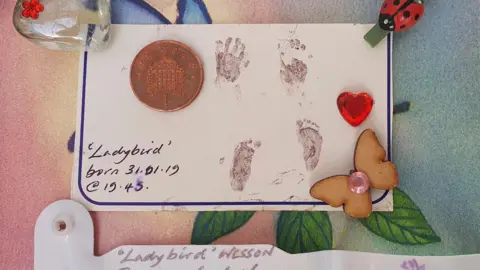
Ms Wesson and Mr Everson say they had a conversation shortly afterwards with a foetal care consultant.
They say they were told their baby would be left with severe care needs, and that it might not survive the pregnancy.
Results from a more detailed analysis of the sample were due back two weeks later. The couple asked if it might show a different outcome, but they say their consultant advised them it would not.
Based on the advice that their daughter had a fatal foetal abnormality, which would be incompatible with life, the couple decided to have an abortion.
Six weeks after, Ms Wesson and Mr Everson were called to a meeting at City Hospital where they were told the second test showed their unborn daughter had no chromosomal abnormality.
Regulations published in 1991 require the two doctors to agree to the termination on the same grounds, although the two-signature requirement does not apply in an emergency.
Further guidance issued by the British Medical Association in 2020 says the Abortion Act requires the signatures of two registered medical practitioners on a form “confirming that in their opinion, which is made in good faith, the terms of the Abortion Act have been satisfied”.
‘I’d still have my daughter’
Ms Wesson said when the couple decided to move forward with the termination at 14 weeks, their consultant “offered to end the [pregnancy] that day”.
“So there was no opportunity for them to speak to the other doctor, to consult anyone about the results. She offered us the medication,” she added.
The trust investigated Ms Wesson and Mr Everson’s case.
While it found a number of mistakes had contributed to the termination, the investigation did not question the circumstances surrounding the signing of the paperwork.
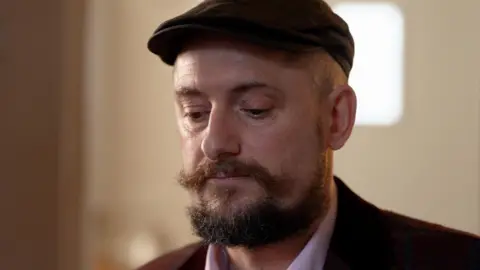
“He [the second doctor] was never interviewed, investigated or spoken to, and yet he’s pivotal,” said Ms Wesson.
“If he’d actually acted as a fail-safe, if he had had the knowledge [about our case] that he should have, and then national guidelines were followed, he would have said ‘this termination should not be offered’ and I’d still have my daughter.”
Mr Everson added: “The second signature, critically, is on there but he did not date it.”
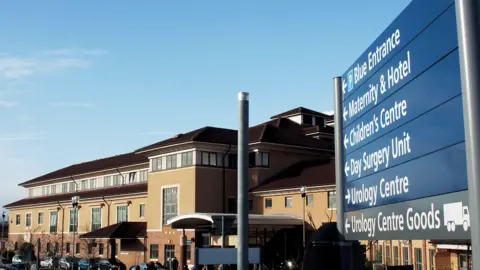 PA Media
PA MediaNottinghamshire Police is examining the case as part of Operation Perth, an investigation into maternity failures at the trust.
The force announced a criminal investigation in September 2023 following discussions with senior midwife Donna Ockenden, who is leading the independent inquiry into maternity services.
In November, the force said it had recently started to receive information from the Ockenden review team.
An investigation in 2012 by the healthcare watchdog – the Care Quality Commission (CQC) – found evidence that 14 NHS trusts were pre-signing abortion forms – whereby one doctor would sign the forms in anticipation of patients seeking a termination.
This breach of the Abortion Act allowed a second doctor to take an individual decision to allow a termination.
The Department of Health and Social Care subsequently published guidance saying it considered the pre-signing of forms, without subsequent consideration of any information relating to the woman, “to be incompatible with the requirements of the Abortion Act”.
NUH was not one of the organisations identified by the CQC investigation.
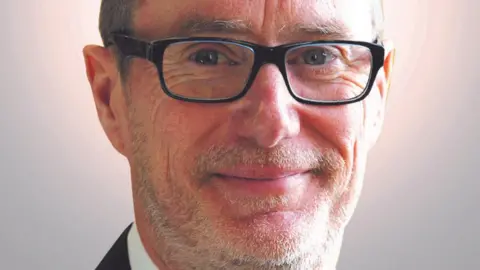 NHS
NHSA spokesperson for the trust said “from the records, we can confirm that the second signature on the form was undertaken by an appropriate registered medical practitioner”.
“There is nothing to indicate that the second practitioner did not have access to all relevant information with which to provide their signature within the grounds of the Abortion Act,” they added.
Responding to the couple’s case, Anthony May, NUH chief executive, said: “I know that we failed Carly, Carl and their baby, Ladybird, in 2019, and for that I am truly sorry.
“While words will never change the outcome, I can assure them and other families that we have investigated and learnt from this tragic case.”
He added: “Our foetal medicine teams provide a specialist regional service to hundreds of women and families a year from across the East Midlands.
“For women and families using this service, there will be times when they are faced with making very difficult and long-lasting decisions.
“We strive to support them to do that in the most compassionate and professional manner and we always want to hear from families who don’t feel their experience matches that ambition.”
Follow BBC Nottingham on Facebook, on X, or on Instagram. Send your story ideas to eastmidsnews@bbc.co.uk or via WhatsApp on 0808 100 2210.



